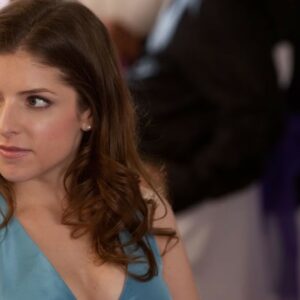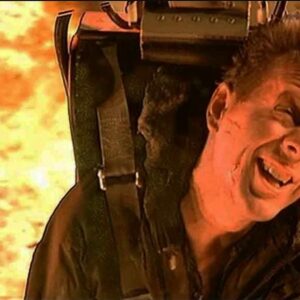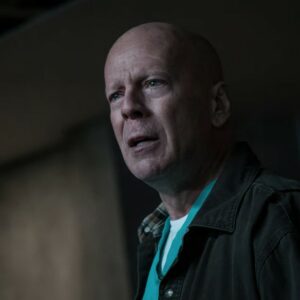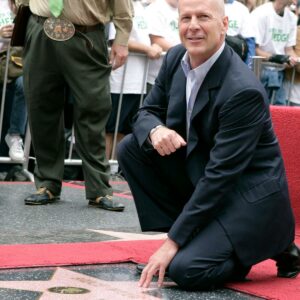Ryan Gosling, the man who has charmed millions on the big screen, didn’t just stumble into stardom. His journey to becoming one of Hollywood’s most celebrated actors is a story of resilience, grit, and the burning desire to create. Gosling’s career path is a testament to both his deep-seated passion for acting and the many hurdles he’s overcome to establish himself as a Hollywood icon. The tale of Ryan Gosling’s life is a fascinating one, beginning in the small town of Cornwall, Ontario, and culminating in a career that’s graced some of cinema’s most iconic roles.
Early Beginnings: A Boy with a Dream
Ryan Thomas Gosling was born on November 12, 1980, in London, Ontario, Canada, and grew up in the small town of Cornwall. From an early age, Gosling was drawn to performing arts. His mother, Donna, a secretary, and his father, Thomas, a traveling salesman, nurtured his creative tendencies. Growing up, Gosling often turned to movies as an escape, finding inspiration in the characters on screen. Despite a quiet, introspective demeanor, his interest in acting was intense. His family recognized his talent and encouraged him to explore it, enrolling him in local talent shows and school plays. This was a time when Gosling was slowly starting to grasp his love for performance, though he hadn’t yet fully realized its potential.
Gosling’s early encounters with acting came through small, local productions. He took to these opportunities with enthusiasm, and his family’s encouragement fueled his ambition. Unlike many kids his age, he was unafraid to take the stage, even though it often meant traveling outside his comfort zone. His mother’s unwavering support was instrumental; she homeschooled him after he experienced bullying in school, giving him a chance to focus on his unique talents. By the age of 12, he had his sights set beyond the small-town life of Cornwall.
Breaking Out: The Mickey Mouse Club
When Gosling landed a spot on Disney’s The Mickey Mouse Club at age 12, it marked a pivotal moment in his career. Relocating to Orlando, Florida, he joined the ranks of future stars like Justin Timberlake, Britney Spears, and Christina Aguilera. Unlike his Disney peers, Gosling wasn’t necessarily the show’s most polished or outgoing performer, but he brought a quiet, intense energy that set him apart. Gosling’s time on The Mickey Mouse Club wasn’t just an exercise in performing; it was his first taste of the rigorous nature of show business, a world far removed from the simplicity of his Canadian upbringing.
The Mickey Mouse Club experience would prove invaluable. Not only did it expose him to the professional demands of the industry, but it also gave him his first glimpse into the mechanics of teamwork and showmanship. Timberlake’s family took Gosling in during his time in Florida, which cemented a friendship that remains to this day. This sense of camaraderie among the young stars helped him develop resilience and discipline, qualities that would serve him well as he transitioned into more complex roles. Yet, as successful as The Mickey Mouse Club was for his career, the road ahead wasn’t smooth. After the show was canceled in 1995, Gosling returned to Canada, facing the harsh reality of transitioning back into normal life.
The Teenage Years: Trials and Determination
Returning to Canada, Gosling struggled to find his place. Like many teenagers, he was plagued by self-doubt and uncertainty. However, his experience with Disney had left him with a taste for acting, and he wasn’t ready to abandon his dream. Gosling began auditioning for television roles in Canada, appearing in a string of shows such as Are You Afraid of the Dark?, Goosebumps, and Breaker High. These early roles were small and often unrewarding, but Gosling approached each with a level of seriousness and dedication that stood out to directors and producers. His relentless pursuit of acting jobs during this period spoke volumes about his drive.
While his peers were settling into conventional careers or college paths, Gosling was sharpening his craft on low-budget sets, often accepting roles simply to get a foothold in the industry. He moved to Los Angeles as a teenager to expand his opportunities, a bold move for someone still in his teens. Hollywood was an unforgiving landscape, and Gosling found himself competing with countless others who shared his aspirations. Yet, he persisted, undeterred by the lack of instant success. His grit and determination were apparent, even if the major roles had yet to materialize.
The Big Break: The Believer
It wasn’t until he was cast in The Believer in 2001 that Gosling’s career truly began to take shape. The Believer, an independent film about a young Jewish man who becomes a neo-Nazi, was a daring choice. Gosling knew it was risky—both for his career and his public image—but he was drawn to the character’s complexity and contradictions. This role marked the first time Gosling could showcase the emotional depth and intensity he’d been nurturing for years. Critics were stunned by his raw performance, praising him for the mature, layered portrayal of a deeply conflicted character. The role earned him the Grand Jury Prize at the Sundance Film Festival, putting him on Hollywood’s radar in a way he hadn’t been before.
Following The Believer, Gosling found himself sought after for similar roles, but he resisted being pigeonholed. Instead, he chose projects that challenged him, such as Murder by Numbers (2002) alongside Sandra Bullock and The United States of Leland (2003). These films weren’t commercial blockbusters, but they allowed Gosling to explore darker, more nuanced characters. Each performance added to his reputation as an actor capable of inhabiting complex, multi-dimensional roles. Gosling’s choices were deliberate; he wanted a career that offered variety and substance, even if it meant staying under the mainstream radar a little longer.
The Notebook: A Heartthrob is Born
2004’s The Notebook was the turning point that Gosling’s career needed. Cast alongside Rachel McAdams, Gosling brought Nicholas Sparks’ character Noah Calhoun to life in a way that captivated audiences worldwide. The chemistry between Gosling and McAdams was palpable, making their on-screen romance iconic. The Notebook wasn’t just another romance; it resonated with viewers on an emotional level, catapulting Gosling to heartthrob status and giving him a taste of mainstream fame. Despite his natural reticence toward Hollywood’s spotlight, Gosling handled his newfound fame with grace.
The film’s success also introduced a different side of Gosling to audiences who hadn’t seen his darker, edgier roles. Suddenly, he was not just an intense actor with indie credibility but also a romantic lead capable of breaking hearts. The Notebook made him a household name, but Gosling continued to be selective, opting to build his career on quality rather than chasing fame.
Embracing Versatility: Half Nelson, Drive, and Beyond
Gosling’s next big role came with Half Nelson (2006), in which he played a drug-addicted teacher struggling to connect with his students. The performance earned him his first Academy Award nomination for Best Actor, marking his arrival as a serious talent in the industry. This period saw Gosling transforming into a bona fide actor’s actor, choosing roles that defied conventional norms and pushed his capabilities.
Films like Drive (2011) and Blue Valentine (2010) solidified his reputation as one of the industry’s most versatile actors. In Drive, he portrayed a mysterious, near-silent stuntman, a role that combined physicality with a quiet intensity. Drive became a cult hit, and Gosling’s portrayal of the nameless anti-hero received widespread acclaim. By now, he was recognized not just as a star but as a serious, dedicated artist who chose roles based on depth and challenge, rather than potential box-office appeal.
The Gosling Legacy: Reinvention and Reflection
Today, Gosling’s career is defined by his commitment to variety. Whether he’s dancing across the screen in La La Land (2016) or delving into the sci-fi landscape in Blade Runner 2049 (2017), Gosling continues to surprise and captivate. He has defied the Hollywood tendency to typecast, maintaining control over his artistic choices and always seeking roles that add to his legacy.
What sets Gosling apart is not only his talent but also his insistence on authenticity. Despite his fame, he remains grounded and selective about his roles, valuing quality and the story’s resonance over stardom. His quiet charisma and intense performances inspire young actors, reminding them that resilience and passion are as crucial to success as talent.
Conclusion
Ryan Gosling’s rise from a small-town kid in Canada to a revered figure in Hollywood is a testament to his hard work, humility, and relentless pursuit of excellence. Gosling’s career exemplifies how dedication and resilience can transform a dream into a legacy. His journey is more than a story of fame; it’s a masterclass in artistic integrity, reminding the world that true success comes to those who remain faithful to their vision





